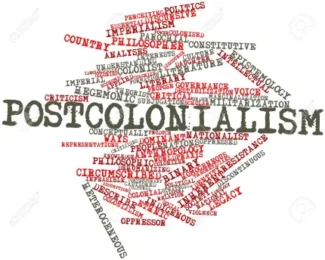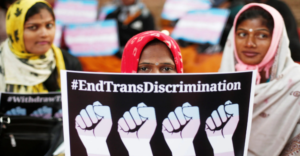~ Tejas Bobe
India was a part of the British Empire for over two centuries. After years of struggle, we gained independence from the Britishers on 15th August. Ever since India has been seen as a progressive country which is trying to uphold its virtues and cultures. But, even after over 75 years of independence, there are still echoes of the colonial past. Even after all these years, the past still haunts us. The Britishers have left a long-lasting mark on us, something that we cannot shun or recover from. The British Raj over the years brought many reforms in cultural, educational and governmental perspectives, while also a never-ending conflict amongst ourselves based on nationality, religion, caste, creed, etc.
Cultural Impact
The biggest mark colonialism has left on us is cultural. Over the course of two centuries, the Britishers banned many practices and superstitions like Sati. The people, at first, were outraged when the foreigners began to interfere in their culture, but eventually, we saw that many such harmful practices died out. On one hand, they were trying to bring reforms, while on the other they were trying to divide the people. For decades they tried to bring a rift between the Hindus and the Muslims and were quite successful in their endeavour. This led to decades of struggles and thousands of casualties when the partition finally happened. Even today, the religious divide between the people still exists, and every now and then we hear about violent incidents fueled by religious differences over the subcontinent.
Educational Impact
Another prominent British mark on us is the English language. English in India is one of the 22 languages recognized by the Constitution as the official languages. It is among the most widely spoken languages in India. The prominence of the English language in India is evident from the fact that it is the popular language choice for studies in India. The language is so deeply rooted in our culture that people usually speak a dialect of their language with many English loan words, indicating that the language has become a part of our culture and civilisation. An example would be ‘Hinglish’, a mix of Hindi and English languages.
Impact on Governance
When the Britishers left a divided subcontinent in shackles, they looked at it as the country that was a democracy. A people’s government was what we struggled for decades, and by the time we got it, the entire subcontinent was in ruins. Nevertheless, our country became democratic with Pandit Jawaharlal Nehru and Lal Bahadur Shashtri leading it, and the Constitution was adopted under the guidance of Babasaheb Ambedkar. However, the country was not complete as many princely states like Kashmir and Hyderabad and territories like Pondicherry and Goa were not a part of the country. Over the course of a decade, however, we were finally able to have a complete country after merging all the territories. What we got was a complete India, with the governance remnants of the former empire that existed, and its evolution into what we have today.
Economical Impact
When the British came to India, we already had a robust economy and were leaders in various aspects like shipbuilding, steel industry, textile industry. By the time the Britishers left us, our country was already in a sorry state and crippling with poverty, a result of the wealth and resources drained by the British. In order to revive the economy, the then government decided to adopt a closed, part-socialist part-capitalist economy. Unlike every other aspect of governance, the Indian economy was partly inspired from socialism in Russia, and not Britain. It resulted in the slow progression of the national economy, but it was not enough. However, after we faced an economic crisis, we adopted an open economy, just like the western nations. What followed was a rapid growth of the economy, resulting in India becoming one of the world’s major economies, even overtaking that of Britain’s.
Impact on Foreign Relations
Being a former colony of the British Empire, it has shaped our foreign relations by quite a margin. India is a part of the Commonwealth of Nations, and hence we maintain good relations with the United Kingdom and other colonised countries like Australia and Canada. However, because of the British induced partition of India, the relations between India and Pakistan have been strained ever since. The lines created due to the decision of partition has resulted in a gash on the face of the subcontinent that might never fully heal. The war against colonialism forged some of the basic ingredients of India’s early foreign policy.
The British Raj marked India’s transition from medieval to a modern nation. There are innumerable scars that the British left on us, and today we as a nation are embracing it, slowly making it a part of our lifestyle. It is important to not forget the past, and instead learn from our mistakes, as it will shape our future and bring more glories to India.
Must Read: https://skchildrenfoundation.org/gurukul-and-montessori-education-system/





